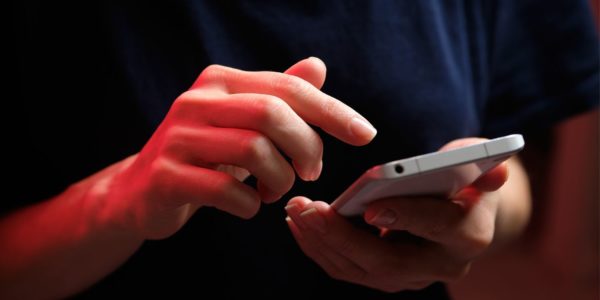Building valuable, healthy relationships are central to living a positive and productive life. Bumble has helped change the way we interact, breaking down old-fashioned power dynamics and encouraging women to make the first move. Over the next month, we’re celebrating love. We’ve partnered with Bumble to highlight interesting ways to start a conversation, how to find love in the digital age, how to cultivate intimacy as we emerge from isolation and more. Alongside our helpful and inspiring content, we’ll also share stories of ‘the one that got away’ — because sometimes it’s the love before that leads you to The One.
Our first date was a disaster. On paper, we had a lot in common: similar taste in film, watched too much TV, couldn’t cook very well and were reading the exact same book. In person, though, it was a disaster.
I was so nervous that I overcompensated: I spoke faster than usual, asked inane questions and rambled until I reached the bottom of a conversation black hole that there was no coming back from. We went our separate ways without a kiss or talk of seeing each other again. “I’m so embarrassed,” I texted a friend as I walked away from you. “I made a total fool of myself.” Neither of us texted after that first meeting.
We saw each other three more times after that initial disaster. On each occasion, we’d sleep together, you wouldn’t stay the night and I’d ask the same question: “Do you want to hang out again?” To which you would respond, “yes”, or “probably”. You didn’t, because you always disappeared only to rematerialise in my DMs at least two months later. We’d repeat the same performance, you’d do your disappearing act.
I always came away from our interactions with the distinct sense that you either thought I was the most uninteresting person you’d ever encountered, or the most brainless. Why did you keep reappearing? One of my closest straight male friends was blunt with me: sex. You came back because you knew I was a reliable source. Surely he’s better than that, I’d think. You weren’t.
“You came back because you knew I was a reliable source.”
During our second meeting, we saw a movie and as we were walking down the back streets after, I asked timidly, “So, what do you want to do now?” You told me you didn’t mind. This back and forth would come to define our interactions. Me always asking, trying to find some modicum of interest from you, you sometimes giving it to me, but more often than not… not.
I never wanted to believe you were as uncaring as your behaviour indicated. You so perfectly perform the virtues and role of a Good Man publicly that I struggled to believe you would simultaneously treat women, or at the very least a woman, as though she’s unworthy of honesty, respect or even basic decency, privately.
“I just, I know he’s not a fuckboy,” I’d tell my friends when they’d ask me why I was so into you in the first place. I really wanted to believe you were good. I still question whether I’m remembering everything completely wrong.
I’m reluctant to use the term ‘gaslighting’ here, because it wasn’t that, and my friends used all manner of dating jargon to try and locate the locus of your awfulness: breadcrumbing, ghosting, orbiting — you did it all, according to them. But because of my belief that these terms only serve to flatten human behaviour into cliches rather than truly identifying any meaningful intent, I ignored them.
It’s naive to believe someone’s public persona is an accurate reflection of their actual politics, or even the way they treat people within their interpersonal relationships, but I succumbed to that naive way of thinking with you, determined to try and have my friends proven wrong.
“It’s naive to believe someone’s public persona is an accurate reflection of their actual politics.”
To be honest, I think I’m still figuring out whether or not there was a lesson to be learnt from you. In fact, I’m starting to think that maybe you taught me the limitations of lessons in love — no, it wasn’t love. Lust? Maybe.
How many times do I need to be hurt by a man like you, to learn to run when the earliest warning signs present themselves? Perhaps it’s true that we have to learn some lessons over and over again, incrementally introducing new changes, new textures of pain, before we decide to choose a different path.
How do you regard our interactions? This is the question that I dwell on when I think of you. You were — are — so unknowable to me. And while that’s exactly what drew me to you, to try and extract an explanation seems like a Sisyphean task at best.
The possibility of closure is a myth we tell ourselves in order to be able to move on, to heal. But what does closure actually look like? It is a complete admission of guilt? An apology? The answer will differ for everyone but perhaps, when we’ve been on the receiving end of pain, in closure we seek some concession of guilt that also confirms a level of affection.
But even then, I’m not sure. Sometimes, the person who hurts us is incapable of being able to give us what we need, incapable of telling us what we want to hear in order to get “closure”. If they were, it wouldn’t have hurt so much in the first place.
You treated me awfully, and all I can hope is that you know that. Though, even if you were aware, I wonder whether you’d care.








